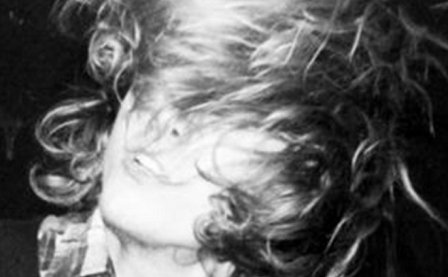When Funkadelic played what they called “rock music,” it was like they’d fallen out of some alternate timeline. You couldn’t call it rock music, though they did. They didn’t know there were rules. They didn’t know Boston or Bad Company; they picked up after “Manic Depression.” They thought rock music was primarily about fuzz, so they lathered everything in fuzz. They hit the drums like they were on fire. Bass lines climbed up the wall and out the access panel. Funkadelic pulled white people out of the audience and screamed in their faces. They played until their hearts nearly burst out of their chests. They didn’t talk about “sex, drugs, and rock & roll,” because it was implied. They talked about peeing on people. They never stopped to ask, is this too much? Did we take it too far?
Like Funkadelic, Ty Segall’s Emotional Mugger is music as cocaine. Mugger is Segall’s ninth solo album in eight years, during which time he’s dabbled in apocalyptic blackness, breezy sweetness, and garage rock at its Kinks-ian apex, riding each style to the end of the track, each one another coaster at the amusement park. Only last year’s Manipulator dared to venture out to the parking lot, serving mostly to remind us how much fun we were having before.
Emotional Mugger says fuck it, and runs back to stick its head in the cotton candy machine. Is “taking it too far” a concept? If so, Mugger is highly conceptual. Each song describes a critical state of ecstasy, sometimes from the perspective of some satanic tempter — a drug dealer, a lover back from a night in jail — sometimes from that of the tempted, lost in the streets, wracked with pleasure and fear. Although the album takes a couple of tracks to get revved up — “California Hills,” Segall’s afternoon in the gilded palaces of Hollywood, feels a touch over-calculated — it plays through like a bender, no lulls, just overlapping thrills. “Breakfast Eggs,” a song about shutting out the world and losing your mind in sex, rides wave after wave of fuzz. “Candy, I want, want your candy… Candy, I want your candy,” Segall sings with a deeply lustful and half-dazed detachment. “Eggs” rumbles into “Diversion;” “I’m back, I’m back, I’m back,” Segall sneers, playing the part of a dirtbag who weaseled out of jail and is now trying to weasel his way into your bed. Fuzz seeps in from every corner. Segall doesn’t so much take a solo as he does practically rip the strings off his guitar.
The album rolls on without giving us much of a chance to take stock of who we’ve met or how we got here. The weirdos we meet in “Mandy Cream” — Milky Joe, Candy Sam, Mandy Cream — get confused in the noise of overdriven organ and scuffling guitars. It all barrels along until, suddenly, guitars clear out for a second; the organ is pushed to the point of melting, and the drums accumulate co-synchronous rhythms. It all becomes deeply funky and just psychedelic enough to start to induce visions, when the guitars come pouring forth again, washing it all out. It’s a spectacle one might watch from the couch while chewing their thumbnail. “Candy Sam” (does your stomach hurt yet?) is more of a rumbler. Candy Sam brings the fun, and when the sugar’s gone, there’s no more fun. Except somehow the white stuff keeps raining down.
We know this kind of euphoria comes with a dark comedown. (For instance: The Kingdom of P-Funk collapsed with a neck-snapping quickness upon the close of the 1970s; the funk gene subsequently detached from rock’s DNA.) And to call Emotional Mugger a celebration of excess, as sweet as it is, would miss the mark. (Although it’s no veiled warning, either — it enjoys itself too much.) No, this is a bender with an undercurrent of anxiety, a feeling that builds as the record closes in on the end. The grubby, funky “Squealer 2,” which draws the album into its jackknife conclusion, finds us in the weirdest situation yet: “Feel that preacher open up your hand,” Segall sings. “He’s your daddy, gonna be your man.”
We’re reduced, in the end, to babies — or perhaps worse, worshippers. Maybe an “emotional mugger” is supposed to be someone so deadened they can only pantomime feelings. Whatever it means, the haze resurfaces briefly at the end of the record, piecemeal like morning-after memories, on the penultimate track, a sound collage called “WUOTWS,” then dissipates completely. We realize we haven’t had an original thought since yesterday morning. “Magazine,” the album’s brooding, menacing snap back to reality, is about, simply, an aloof narrator thumbing through a magazine. The handclaps could be a thin page turning or a gun being emptied. Both seem to signal a brutal, final emptiness. We’re left apart, with nothing. And we might have gotten out OK, with nothing more than a hangover, if we hadn’t stopped to ask — did we take it too far?
More about: Ty Segall




